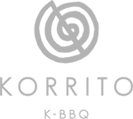Need help finding a great Tier 2 Visa lawyer?
Compare fixed fee quotes from 200+ immigration lawyers.
Save 46% on average.
Compare fixed fee quotes from 200+ immigration lawyers.
Save 46% on average.
























Hiring the best talent can give your company an enormous edge. If you’re looking to hire someone from outside the European Economic Area (EEA) and Switzerland, your best bet might be to sponsor them under the Tier 2 Sponsored Visa Scheme.
To do this, your company will first need a sponsor ‘licence’ from UK Border Agency, then meet a number of strict hiring and job requirements. There’s a tonne of paperwork and the rules are complex, but as a licenced sponsor you’ll be able to tap into a truly global workforce.
Most businesses use experts to help with the process - this is where Lexoo comes in. Simply tell us your needs and we’ll send you fixed fee quotes from a range of hand-picked immigration lawyers within 48hrs, for free.
“Prior to contacting Lexoo I had spent hours unsuccessfully trawling the internet looking for the right service, but Lexoo found a suitable solicitor willing to take on this work just hours after our initial enquiry.”- Carolyn Harry, RPC Services Ltd (Lancashire)
It's quick and free! Get free quotes
Receive competitive quotes from qualified lawyers, usually within 24 hours
Have a no obligation call with your chosen lawyer
The Tier 2 Visa (like any UK visa) involves a lengthy process with ever-changing rules, exceptions and dependencies. While we can’t cover all the issues, we’ve done our best to give you some helpful guidelines to follow.
This guide covers:
The Tier 2 Visa scheme lets UK businesses hire skilled workers from outside the EEA (and Switzerland) using an employer licence and points based system. There’s an annual limit of 20,700 visas, split into monthly quotas.
As an employer, you’ll need to register for a sponsorship licence which lasts four years. Then for each hire you’ll need to meet the job eligibility, advertising and skills requirements and apply for your candidate sponsorship certificate(s).
Here’s a step-by-step outline of the process:
Any company that wants to hire outside the EEA first needs permission from the Home Office in the form of a licence to sponsor migrant workers. You’ll need to prove your company meets certain criteria and will normally be inspected by the Home Office.
Once you’ve successfully gained a sponsorship licence, you’ll be able to issue certificates of sponsorship for suitable jobs at your company for the next 4 years. Count on the whole application process taking between 6 to 8 weeks in total (this can be quicker if you use a solicitor).
The cost of applying for a licence for an SME is currently £536. If you use a lawyer, budget spending between around £2,000 and £4,000, depending on the firm.
Due to the complicated application process and the fact that you cannot dispute a decision, we strongly recommend using a lawyer to help you with your application.
To find out more about the process, start by thoroughly reading the government guidance here.
Once your company has a sponsorship licence, the next step is to make sure that the job you are hiring for meets the criteria for sponsoring foreign workers:
1. The job must fall under one of the Standard Occupational Classification (SOC) job titles, as defined by the UKVI on page 6 here.
2. The job must meet a minimum skills threshold, which means it should be pitched to degree level or equivalent (NQF Level 6).
3. The salary must be either at least £20,800, or the minimum rate as set in the relevant Standard Occupational Classification (SOC) on page 34 here (whichever is highest).
Known as a ‘Resident Labour Market Test’, jobs must be advertised for 28 days within the UK to prove that no suitable ‘settled’ (European or British) local candidates could be found.
The usual procedure is for jobs to be advertised with the government’s Jobcentre Plus site, as well in as in one other place (either a national newspaper, professional journal or online).
You don’t need to advertise if the role falls under the UK shortage occupation list, or has a salary of £155,300 or higher.
Once all of the above has been done you can now (finally) sponsor your candidate!
To do so you need to apply for a candidate sponsorship certificate (currently £199). Once the certificate has been issued the visa application process can begin.
The cost to apply for a visa of up to 3 years is currently £564, outside of the UK, or £651 within the UK. Further information and the cost of applying for visas of more than 3 years, or in shortage occupations can be found here.
In addition to the visa application fee, there is also a health care surcharge up front. This is usually £200 per year and can be calculated here.
Under the points based system, the migrant worker will need to gain a minimum of 70 points to qualify for a visa:
Once a visa application has been processed (processing times can be checked here), the decision on the visa is usually taken within 3 weeks.

More cost effective
We save you money by finding lawyers that work on a low overhead basis
You’ll know what it costs up front
All of our lawyers provide fixed fee quotes giving you complete transparency up front
Multiple quotes and quick responses
We aim to provide multiple quotes from the most suitable lawyers for your case within 24 hours
There is no cost to you
Time is money. We provide our matching service for free. We will never charge you a pennyAt a minimum, it costs around £1,500 to sponsor a candidate (if you go it alone), and anywhere from approximately £3,000 to £6,000 with legal help. So either way, it’s a considerable investment.
With a lead-time of around 3 to 6 months, from registering for a licence to actually making a hire, the process of sponsoring a visa can be long, complicated and takes a lot of resources.
Here are a few tips from our panel of specialist immigration solicitors:
1. Get your house in order - with ever-increasing scrutiny from the Home Office, we suggest ‘getting your house in order’ before filing the licence application. Get a professional ‘audit’ of your business first and engage an expert early in the process. If your sponsor application is refused, you could be barred for 6 months before being able to re-apply.
2. Mind the quota - there’s an annual limit of 20,700 visas (allocated monthly) with 2,250 available in April and 1,650 for each other month. When the quota isn’t met, the remainder rolls over into the following month. Monitor the demand by checking the monthly certificate allocation figures here.
3. Go big on salary (and skills) - as the economy continues to do well, to avoid rejections during periods of high demand it may worth increasing the salary - admittedly a challenge for many businesses! In June 2015, the monthly limit was reached for the first time, with 1,300 applicants being refused. Due to the way the points system works, the higher the salary (or if the role is pitched at PhD level), the more points an application receives - this could give you an edge.
In the race to attract the best employees, being able to draw on a global talent pool can give you the upper hand. Whilst the process isn’t cheap, the businesses we talk to see it as an investment in the future growth of their company. To make sure you’re getting the best advice for the right price, Lexoo gives you multiple fixed fee proposals from panel of specialist immigration solicitors within 48 hours, for free - give us a try!
Interested in the Tier 1 Entrepreneur Visa Scheme? Read more here.
























Any questions, or just want to chat? Get in touch or call us on 020 3637 1323